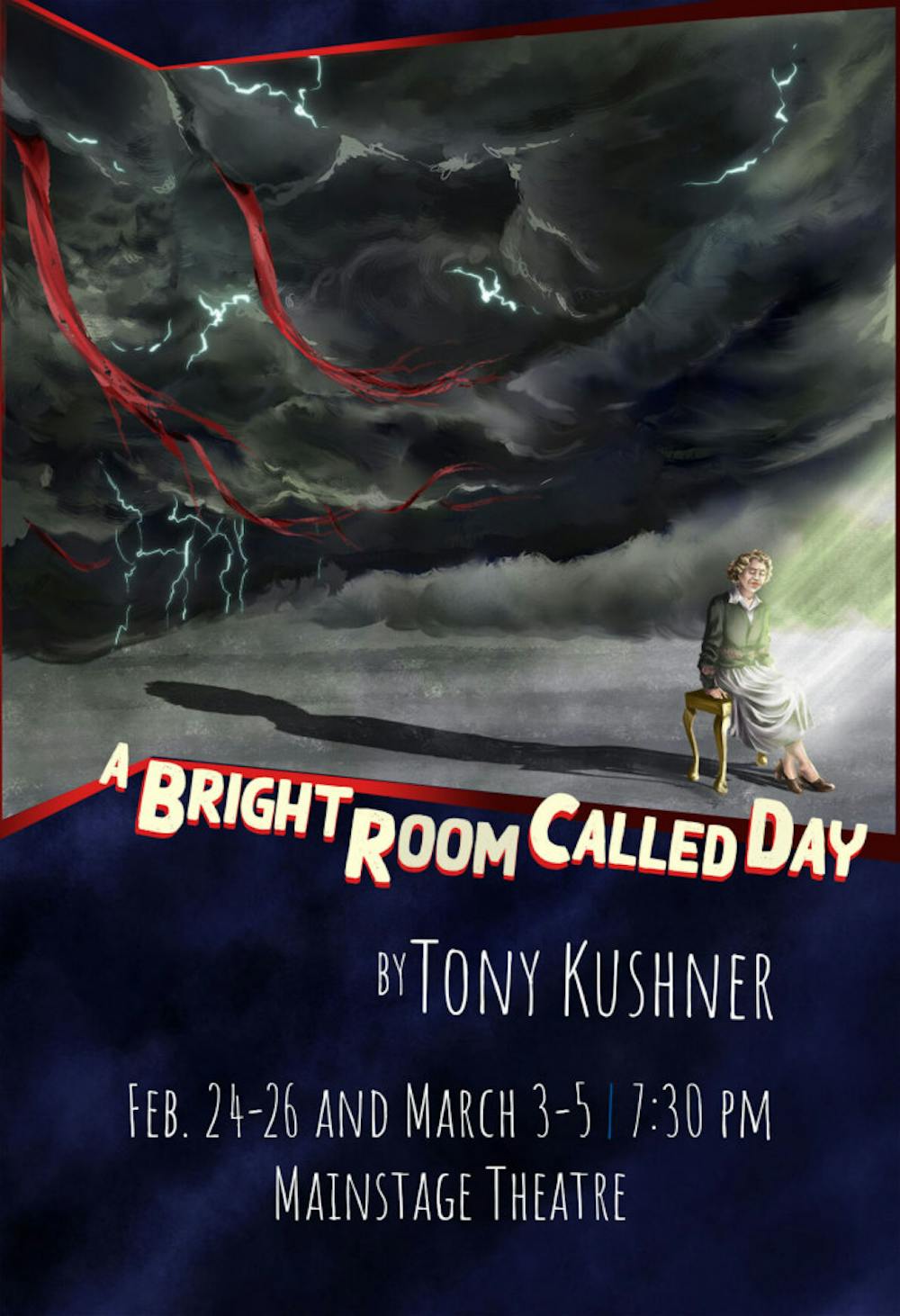The University of Memphis’s theater department will continue its run of "A Bright Room Called Day" this week.
The play, which is the department’s second production of the semester, will run for three more days at 7:30pm from Thursday to Saturday in the theater building.
Originally written by Tony Kushner in 1985, "A Bright Room Called Day" explores the fragility of democracy, and how easily authoritarian governments can rise if inaction allows it. Set primarily in 1930s Germany, the play follows a group of friends who must choose between fighting for their beliefs or looking the other way, as they live through the rise of the Nazi Party. Simultaneously, the play flashes forward to the mid-1980s, following a woman who believes President Reagan is all too similar to Hitler.
“If you like World War II era dramas, then you’ll really enjoy the show,” said Austin Wall, a junior performance major. Wall plays Husz, a Hungarian camera man who films propaganda. “He got stuck in Germany… and he was forced to be a part of the creation of Nazi films.”
Although it was written in the 80s, the play remains relevant to this day.
“I think that the show resembles a lot of things going on today,” said Jasper Lane Pippin, who plays the character Gregor. “So when people watch the show, I would really love them to kind of see how that compares, and draw those similarities to their own lives and what’s going on, and ask themselves, ‘am I doing enough?’”
The play is being directed by Jamie Warrow, a third year directing candidate pursuing her master’s degree.
“A director is in charge of unifying the vision of all the artists that work on the show,” she said. Warrow works with sound, lighting, scene designers and costume designers to create a consistent, unified production. “On a day-to-day basis in rehearsal I work directly with the performers to help them align with the artistic vision to enable believable performances.”
Designing a play presents many challenges. According to Warrow, projects are worked on for about 10-12 weeks before they are performed to the public.
“Directors need to have stamina and resiliency,” she said. “There’s so much information to distil, there’s so many personalities, and once you get done with one part of the process, the next part presents itself, and has its own challenges.”
Period pieces such as this require much preparation for the actors.
“I really loved diving into the research on the characters and the time period for this piece,” said Emily Seatvet, understudy for the program. “Period pieces are so interesting because you can pull from history, and build characters through that, so being able to research all these different characters and what makes them tick have been really fun.”
What Pippin enjoys most about learning a new play is the text workshop. This is one of the first steps of learning a play, which involves reading the script a few times, and getting a general idea of the flow of the production.
“The script has a lot of political jargon and contextual things that was relevant in the 1930s that maybe is not so talked about now,” he explained. “So a lot of that process went to learning and understanding all of this historical information so we could know what we’re talking about on stage.”
Wall loves his work as an actor. “It’s so satisfying to know that you’re on stage with people that share a passion with you, and that you’re just there and having fun,” he said. “That thrill, and being in front of an audience that enjoys watching you have fun on stage- nothing beats it.”
Admission is free to all U of M students, and $25 for other adults. Tickets are available at https://app.arts-people.com/index.php?actions=10&p=1.






